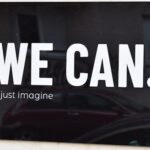
Assistant Minister for Competition, Charities, and Treasury, the Hon Dr Andrew Leigh MP, has announced that the Paul Ramsay Foundation (PRF) is funding a new $2.1 million national open grant round for evaluations of social impact programs that include an ethical experimental component.
The PRF says experimental evaluations are understood to be highly effective tools, yet they are still vastly underused across the for-purpose sector. The grants will help to deepen the understanding and experience of evaluation techniques and help shape future investment in social impact programs.
Minister Leigh believes randomised trials I’m medicine have saved countless lives.
“Bringing the same ‘what works’ philosophy to Australian social policy is vital to helping the most vulnerable. In countries such as Britain and the United States, philanthropic foundations have a strong track record in supporting randomised policy trials,” Minister Leigh said.
PRF’s Head of Measurement, Evaluation, Research, and Learning, Dr George Argyrous said the open grant round will show that experimental design can be a cost-effective and efficient way to evaluate areas of social impact.
“Experimental methods of evaluation are not often used in Australia, due partly to some widely held misconceptions, and we hope that this work will challenge some of these barriers. With appropriate planning and access to relevant data, experimental designs can be done with modest budgets and within a short time-period. Experimental and non-experimental evaluation designs can work together to answer a broader range of questions, thereby providing a richer understanding of impact,” said Dr Argyrous.
Expressions of interest are now open for seven available grants, up to a maximum of $300,000 each. The grants are open to registered charities and non-profit organisations who are implementing, or intend to implement, programs that improve outcomes aligned to PRF’s outcomes which are:
- Children and young people have positive life paths free from entrenched poverty and harm.
- Places and communities are connected and imagining and leading their own futures.
- Conditions support thriving.
- First Nations people and communities are self-determining.
More here:




